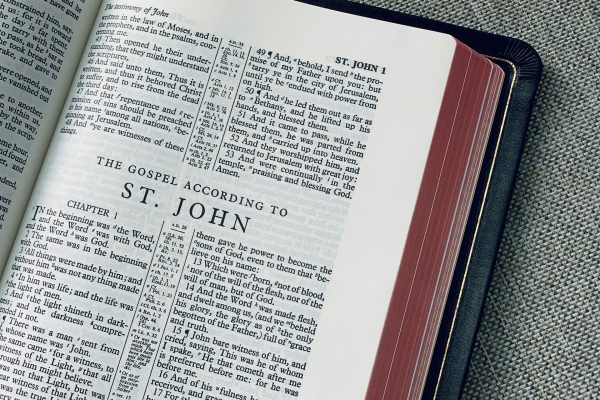John 4:46-54 records the story of a nobleman who looked for Jesus so that He would heal his son who was near death. Some confuse the nobleman with a centurion who also sought help from Jesus to heal a servant who was deadly ill. This account is recorded in Matthew 8:13 and Luke 7:1-10. The two healings are very similar but are not the same. Both men were men of authority, one a nobleman and the other a centurion. Both were from Capernaum. Both wanted healing for someone they loved.
However, there are differences in the accounts which indicate two different incidents. The nobleman was likely a Jew; the centurion certainly a Gentile. The nobleman looked for help for a son; the centurion looked for help for a servant. The nobleman asked Jesus to come to his house; the centurion told him not to come. The faith of the nobleman was weak, but the faith of the centurion was strong enough for Jesus to say that He had not seen such faith in all of Israel.
The incident of the nobleman and his appeal to Jesus for help for his son is another illustration of John “filing in the gaps” or supplying information for posterity which would not otherwise be known. Quite frankly, the faith of the average raised-in-the-church Christian may more likely be like the faith of the nobleman than of the faith of the centurion.
The nobleman personally sought help for the healing of his son, and while Mathew’s account of the centurion might indicate that he also personally sought help for his servant, Luke’s account of the same incident clearly shows that he sent Jewish rulers to ask Jesus’ help. The nobleman had a real need, an ailing son. And he knew who could heal his son for him. He felt, however, that Jesus’ presence in his home was needed for the healing to take place (John 4:47). The nobleman’s faith was first tested when he made his plea that Jesus would come down and heal his son. Jesus said, “Except ye see signs and wonders, ye will not believe” (John 4:48). The nobleman was not deterred by this. He said, “Sir, come down, ere my child die” (John 4:49). Then Jesus put him to his greatest test. He said, “Go thy way, thy son liveth” (John 4:50). The record said, “The man believed the word that Jesus spoke and went his way.” Servants from the nobleman’s home came to meet him with a wonderful message: his son lives! When the servant was asked when the son had begun to recover, his answer was “yesterday at the seventh hour, the fever left him” (John 4:53). The nobleman knew it was at that hour that Jesus assured him “thy son liveth” and he and his house all believed. The nobleman’s faith grew and grew.
So many of us have heard the gospel all our lives and we believe. Our faith is based on the testimony of others. But while we believe, we may wonder about how strong our faith is. We do what we do because we believe Jesus is the Son of God and that we must obey His words to be saved. We are baptized because that is what Jesus taught us to do (Mark 16:15-16). We assemble with the disciples on the first day of the week because we have the testimony of His apostles that is what disciples must do (Acts 20:7; Hebrews 10:25). We observe the Lord’s Supper and remember His death because we are so commanded (Matthew 26:26).
Then our calm world ceases to be calm. We lose someone precious to us — perhaps a child or a spouse. We have a reversal of fortune and major expenses are incurred. We are personally struck with a terrible illness, or we live on into extreme old age and see our own bodies grow weak and frail, conscious of failing hearing, eyesight, and memory. But we continue to do as we have been taught. Why? Because we are so taught and what else can we do?
Then, slowly life comes back to a degree of normalcy. We still pray and worship, and while we surely don’t have the centurion’s faith, we still believe in Jesus. Like the distraught father who said to Jesus regarding his ailing son, “If thou canst do anything, help us,” Jesus’ response was, “If thou canst? All things are possible to him that believeth.” We can hear the anguish of the father when he plead with Jesus: “Lord, I believe. Help thou my unbelief” (Mark 9:24). How we identify with him!
We may not have the faith of the centurion. But remember that Jesus said He had not found faith like his in Israel. That included Peter, James, John, and the rest. But their faith grew. We may feel that we don’t have the faith of the martyrs to die for Jesus, but don’t forget, it takes faith also to live for Jesus.
Remember, after Jesus had convinced Thomas that He had truly been raised from the dead, He told him, “Because thou hast seen me, thou hast believed. Blessed are they that have not seen, and yet have believed!” (John 20:29). Acknowledge that the nobleman did come to Jesus with weak faith yet remember when Jesus assured him, “Your son liveth,” he believed. Then, when the servant told him the fever had left his son at the seventh hour — the very time Jesus told the nobleman, “Your son liveth,” again the record said, “He believed, and his household.” The faith of the nobleman grew and grew. So should ours.
Jim McDonald


